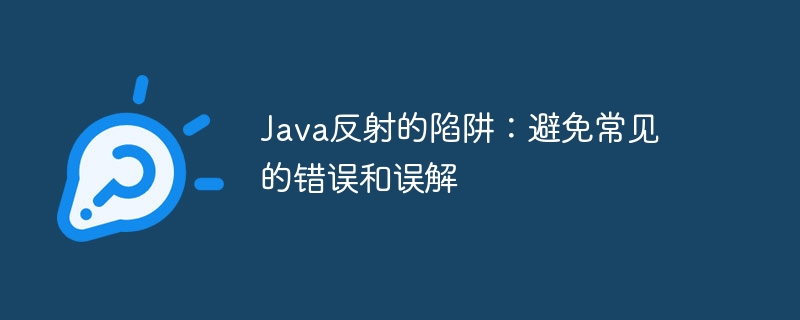

php editor Strawberry has carefully compiled the traps about Java reflection to help readers avoid common mistakes and misunderstandings. Java reflection is a powerful technology, but it can cause some potential problems during use. By having an in-depth understanding of the principles and precautions of the reflection mechanism, you can effectively avoid pitfalls and improve the reliability and stability of your code. In this article, we will focus on the common problems that occur in Java reflection and share solutions to help developers better utilize this feature.
However, Java reflection can also cause trouble for developers. Here are some common pitfalls:
Here are some tips to avoid Java reflection pitfalls:
The following is some demo code showing how to use Java reflection to access classes, methods and fields:
import java.lang.reflect.Field;
import java.lang.reflect.Method;
public class ReflectionExample {
public static void main(String[] args) {
// Get the class of the object
Class<?> clazz = Object.class;
// Get the public fields of the class
Field[] fields = clazz.getFields();
// Print the names of the public fields
for (Field field : fields) {
System.out.println(field.getName());
}
// Get the public methods of the class
Method[] methods = clazz.getMethods();
// Print the names of the public methods
for (Method method : methods) {
System.out.println(method.getName());
}
// Get the private field "name" of the class
Field nameField = clazz.getDeclaredField("name");
// Set the value of the private field "name" to "John Doe"
nameField.setAccessible(true);
nameField.set(null, "John Doe");
// Get the value of the private field "name"
String name = (String) nameField.get(null);
// Print the value of the private field "name"
System.out.println(name);
// Get the private method "sayHello" of the class
Method sayHelloMethod = clazz.getDeclaredMethod("sayHello");
// Invoke the private method "sayHello"
sayHelloMethod.setAccessible(true);
sayHelloMethod.invoke(null);
}
}This code will print out the names of all public fields and methods of the Object class, set the value of the private field "name" to "John Doe", and then print out the value of the private field "name". Finally, this code will call the private method "sayHello".
The above is the detailed content of The Pitfalls of Java Reflection: Avoid Common Mistakes and Misunderstandings. For more information, please follow other related articles on the PHP Chinese website!
